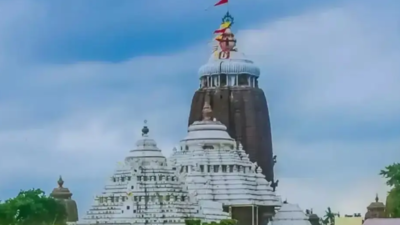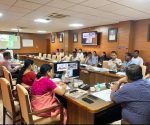Jagannath Temple in Odisha’s Puri without governing body for 8 months | Bhubaneswar News

BHUBANESWAR: The Jagannath Temple in Puri has been functioning without its governing body for the last eight months, impacting the shrine’s administration. The principal decision-making body, an 18-member managing committee (MC) tasked with policy decisions, completed its three-year term on Sept 3, 2024.

After implementing the Shree Jagannath Temple Act, 1954, the Odisha govt assigned the temple’s daily administration to the statutory MC to ensure proper preservation and enhanced management of the temple. According to the Act, the MC must approve all decisions, from rituals to financial matters, before implementation by the govt in this 12th century shrine. Despite a senior IAS officer (chief administrator) and other govt officials overseeing the temple’s daily administrative operations, the MC’s absence has led to several pending crucial decisions regarding the shrine.
Poll
Should the government expedite the formation of the temple managing committee?
About 10 key proposals remain unresolved, with significant ones, including the 2025-26 budget, new darshan system, and repositioning of the temple Hundi. “The temple currently operates on an interim budget, as the 2025-26 budget awaits approval due to the committee’s absence,” a senior temple official said.The proposed queue darshan system’s implementation faces delays pending MC approval. The new system includes a six-lane ramp within wooden collapsible barricades at Natamandap, opposite the sanctum sanctorum, designed to facilitate organised darshan. It provides separate paths for men, women, and senior citizens, with plans to include differently-abled devotees. “With the Rath Yatra approaching on June 27, the MC’s absence could create additional challenges. Traditionally, the MC finalises the rituals, arrangements, and guidelines for Rath Yatra annually,” the official said.The shrine authorities said that while the chief administrator is currently exercising his extraordinary power under the Temple Act and handling daily management decisions, these must require subsequent post facto approval once the MC is established.“If the MC formation doesn’t take place before Rath Yatra, the chief administrator will have to make decisions and obtain post facto approval later. However, he cannot take decisions involving major proposals and controversial matters,” he said.Collector (Puri) and temple’s deputy chief administrator Siddharth Shankar Swain said, “Due official process already started for formation of the managing committee. It is the govt’s discretion to finalise the members of the committee.”Recently, law minister Prithiviraj Harichandan told journalists: “The govt is aware of the matter and will soon constitute the temple managing committee.”
















